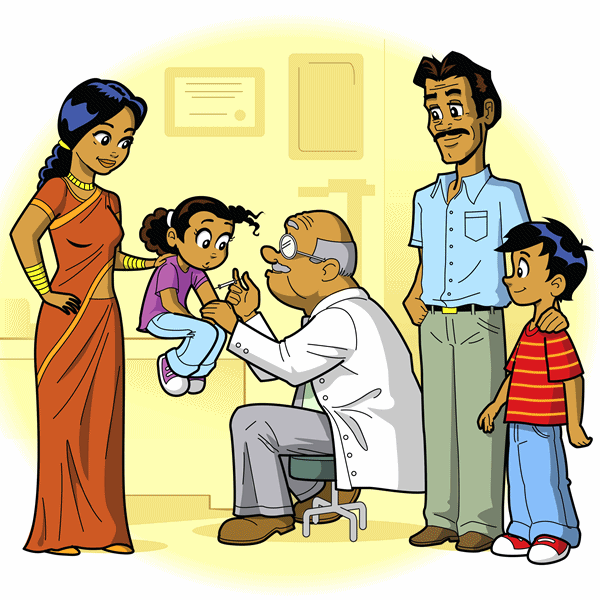Dr Srivats Bharadwaj, Founder and CEO, Vatsalya Dental, Bengaluru, opines that healthy doctor-patient relationship is built on mutual trust and respect. It is the foundation of a good healthcare practice

Not too long ago, the doctor was your friend, philosopher and guide. Someone who knew your family history, understood your health concerns, and did his best to remedy them. Likewise, the doctor’s biggest incentive was the respect and trust that the patient showered on him.
Sadly, somewhere down the line, in our transition from friendly family doctors to fancy corporate hospitals, we seem to have lost the way. Of course, medical equipment today is more sophisticated and scientific research more advanced, but the humane element is missing.
We have been witnessing a large-scale disconnect between patient expectations and healthcare delivery – for which doctors are bearing the brunt. Gone are the days when patients blindly trusted their doctor. Today, thanks to Google, everybody is armed with (often half-baked) information on symptoms and treatments. Whatever the doctor suggests has to be seconded by at least one more expert. Rules and etiquettes of the doctor-patient relationship are being rewritten.
What patients want?
In a recent study, the Indian Medical Association (IMA) asked 1,000 patients across the country their opinion about doctors, and the results were enlightening. Around 90 per cent said they wished doctors actually ‘listened’ to their health complaints during the first consultation, while 80 per cent wanted the doctors to consider their opinion before deciding on the course of treatment. And almost 85 per cent of the patients asked that the doctors disclose all information related to treatments, procedures and risks. The biggest revelation was, perhaps, 50 per cent of the patients stating that doctors seldom say ‘thank you’.
Healthcare cannot just be about disease and diagnosis; there has to be more. A healthy doctor-patient relationship built on mutual trust and respect is the foundation of a good healthcare practice. The patient needs to believe that his health is in safe hands. In an interesting study entitled, ‘Feelings of clinician-patient similarity and trust influence pain: Evidence from simulated clinical interactions’, it was found that when patients consult a doctor whom they trust and share something in common with – say, cultural background, for instance – the agony experienced during a painful medical procedure is lesser. According to the researcher Dr Elizabeth Losin, assistant professor of psychology at the University of Miami College of Arts and Sciences, “the doctor is essentially acting as a social placebo, playing the same role that a sugar pill would play if we were doing a study on placebo pain relief.”
The study suggests that participants who experience higher levels of anxiety on a day-to-day basis experienced greater reductions in pain from consulting a trusted doctor. Dr Losin plans to use the results of her study to design and test new methods that clinicians can use during the doctor-patient interaction to help build trust.
Learning to be a doctor
What does it take to be a doctor? A good academic score? Aptitude for science? Persistence and patience? Well, it does take all of that and a lot more. Medicine is a challenging profession that demands not just sound theoretical knowledge, but also tireless practice. In India, the theory part of medical education is rather comprehensive, but what about the practice?
At no point in their medical education are doctors taught how to communicate effectively; how to empathise with patients and their families; how to build trust. We need to re-look at how medicine is being taught in our country. The time is right to introduce lessons in cultivating the right attitude as well as having meaningful conversations with patients. Aspiring doctors need to be equipped with these vital skills to meet patient expectations.
A small, but significant step in this direction is the submission of the findings of the IMA study on patients’ perceptions about doctors to the Medical Council of India. The idea to highlight the urgent need of incorporating soft skills into the medical curriculum in India.
Another disturbing study by the IMA shows more than 75 per cent doctors in the country have experienced some form of violence – verbal or physical – while on duty. And according to an article published in The Lancet last month, “These instances (of violence against doctors) point not just to poor safety of health workers in the workplace, but also to deeper malaise of growing mistrust between doctors and patients and inadequate health infrastructure.”
In other words, there’s no denying the need for stronger laws against assault at workplace – The Doctors Protection Act 2010 has failed to have an impact in the 19 Indian states where it’s in force – and better security in hospitals, but that’s not going to resolve this issue. When an orthopedic doctor loses his eyesight, courtesy the ruthless attack by angry relatives of a patient, and doctors feel the need to learn taekwondo for self-defence and wear helmets when attending to patients, you know things have gone too far.
I’m yet to come across a doctor who intentionally wants to harm his patients. As doctors, we always want to do our best. Yet, things continue to fall apart. Blame it on the poor healthcare infrastructure in public hospitals and the increasing commercialisation of private hospitals. The fault is in the system. What patients want and what the healthcare system delivers is completely out of sync. What a medical student learns in college and what he deals with on the job seldom have a common ground.
The need of the hour is to train young doctors and aspiring medical professionals to meet patient expectations, to listen with empathy, and to embrace a more humane approach. Because the only cure to the current healthcare malaise is rebuilding lost trust. And that’s no mean feat.
- Advertisement -



Comments are closed.